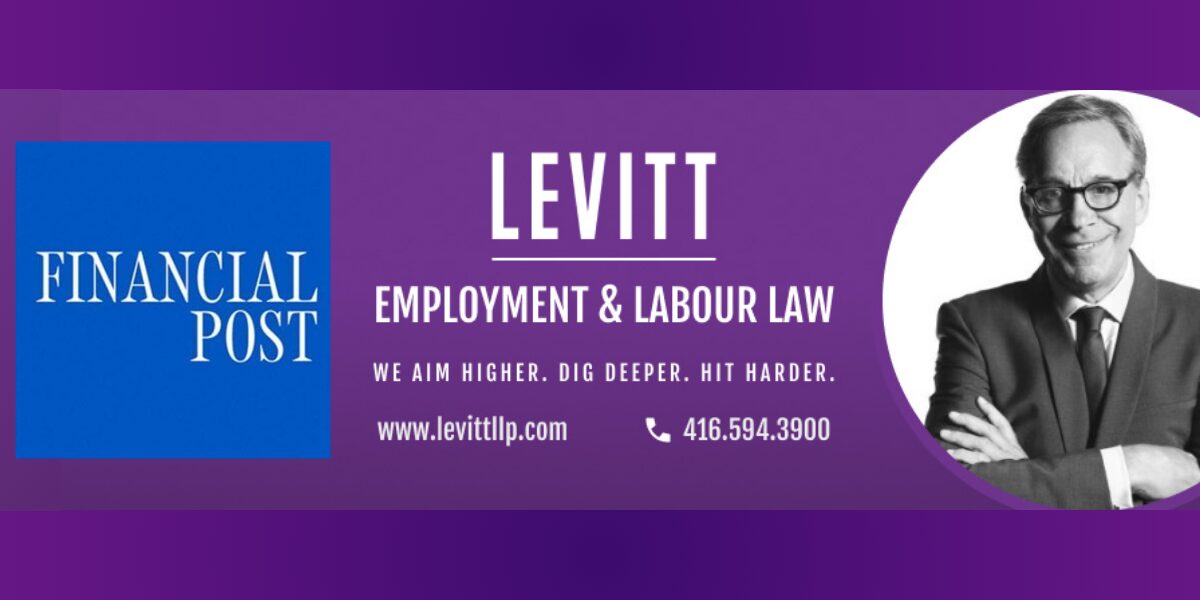By Howard Levitt and Rob Lilly
More than half of Americans believe justice is rarely if ever served against corporations. That is a staggering figure
To some, Luigi Mangione is a modern-day Robin Hood, exacting retribution on the health insurance industry in the name of the little guy. Mangione rose to notoriety in early December, after he allegedly shot UnitedHealthcare chief executive Brian Thompson from behind outside of the New York Hilton before Thompson’s morning meeting with investors.
Mangione fled on foot and then on a bicycle — leaving behind a dead man and three shell casings with the words “deny” “delay” and “depose” inscribed on them. Law enforcement officials said these words could be a reference to the “three Ds of insurance,” resembling the title of a 2010 book: Delay, Deny, Defend: Why Insurance Companies Don’t Pay Claims and What You Can Do About It.
When Mangione was arrested days later in a fast-food restaurant in Pennsylvania, he was reportedly in possession of a document that expressed “ill will” toward corporate America, with the handwritten phrase, “Frankly, these parasites had it coming.”
Instead of condemning Mangione, the Internet praised him, revealing widespread vitriolic hatred toward health care insurance companies. The examples of support are plentiful. More than a hundred thousand people posted laughing emojis on UnitedHealth’s Facebook page mourning Thompson’s death. #FreeLuigi was posted across social-media platforms. Thousands of dollars were raised for Mangione’s legal defence before the website deactivated the campaign. Other sites sold merchandise bearing such phrases as “Don’t Deny My Coverage” and “In this house Luigi Mangione is a Hero. End of Story.”
Nearly half of young Americans aged 19 to 29 surveyed in a poll by YouGov said they viewed Mangione as “very favourable” or “somewhat favourable.” Respondents in the 30 to 44 age category viewed him only marginally more negatively. Older Americans, especially those over 65, cast him in a significantly more unfavourable light.
One would expect universal disapproval of the first-degree murder of an innocent man. Yet, vigilantism against the health insurance industry has made its way into the zeitgeist.
When asked how often corporations are held accountable by the law for their unlawful acts, nearly 60 per cent of all respondents said “rarely” or “never,” according to the same poll. That is a staggering figure: more than half of Americans believe justice is rarely if ever served against corporations.
How does this bode for insurance companies that do in fact act unfairly in denying and defending disability claims? Will judges be swayed by public perception of eroded corporate accountability? While we would welcome higher judicial punitive damages awards against insurers to deter bad faith and level the playing field, it is not likely to happen. That is because judges are inherently impartial and less inclined to award large punitive awards — but for a jury with an appetite to stamp out corporate malfeasance, it is a different story.
Juries are formidable justice dispensing machines. Composed of a panel of “our peers,” this group — from all walks of life — decides the legal fate of the insurer and how much it should pay, which can be millions of dollars.
In America, lawyers can extensively interview potential jurors on their past experiences and biases to eliminate jurors who may rule against their clients. In Canada, the jury selection process is much more restricted. Here, lawyers only know the candidates’ names, addresses and occupations. Questioning is very limited and juror disqualification is not nearly as abundant.
We wrote previously in these pages about the largest punitive damages award against a disability insurer. In Sara Baker v. Blue Cross Life of Insurance, a jury awarded an unprecedented $1.5 million in punitive damages to Baker. There was a troubling pattern of “systemic” misconduct at Blue Cross, with multiple employees using the same unethical strategies against claimants like Baker.
This, according to the Court of Appeal, suggested that many others might have been similarly affected but lacked the stamina to pursue the insurer to trial. “Deterrence is impossible unless the punishment is meaningful,” Justice C. William Hourigan wrote in the decision — noting, however, that the amount was “little more than a rounding error.” We view this as an invitation for larger awards.
The stakes have never been so high for disability insurers. The winds have changed, especially because of those under 45 years of age who possess a voracious desire for corporate accountability. Given the new climate, we expect more trials by jury and larger awards — not figures tantamount to rounding errors. Indeed, we would like to think that more “meaningful” jury awards against insurers would renew public confidence in the justice system — followed, hopefully, by reduced support for vigilantism and murder.

